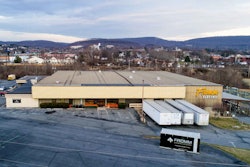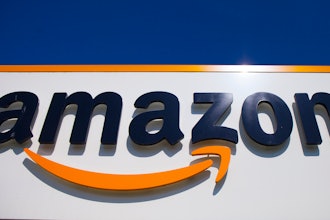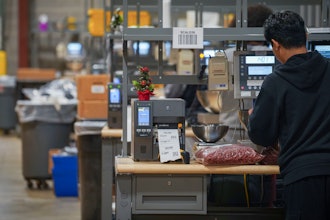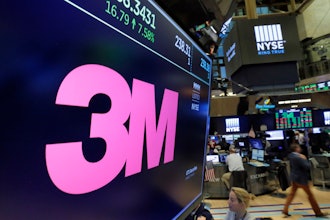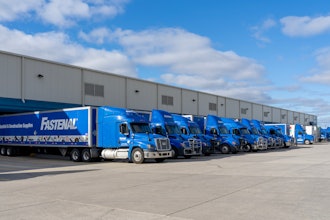Amazon Business is growing rapidly, and large distributors in the industrial supply industry should be worried.
However, many distributors still don’t view Amazon as a true threat. The common assumption is that B2B is a much different game than B2C, which Amazon has come to dominate. They claim Amazon can only handle relatively commoditized shippable items and, in B2B, many items require more complex fulfillment and shipping practices. They cite their sales force or value-added services as unassailable advantages.
Many of these companies also assume that Amazon lacks the industry-specific knowledge to sell in the industrial supply industry where relationships tend to matter more than they do in B2C.
However, these complaints echo the sentiments given by several B2C retailers a decade ago.
For example, in electronics, many B2C execs didn’t view online retailers as a threat. As one C-suite executive put it, “People want to see the TV’s picture before they buy it. They want to hold the item.”
Similarly, in apparel, many didn’t take online retail as a serious threat. The common refrain from the C-suite at these traditional retailers was: "People can’t buy clothes online. How will they know if it fits?”
Obviously, in hindsight, both of these notions proved incorrect. More and more, electronics and apparel retail has been moving online to e-commerce platforms like Amazon.
As a result, a veritable graveyard of retailers who have gone bankrupt has emerged and grown dramatically. In fact, we charted the average time it took from Amazon entering an industry against how long it took for the major retailers in that sector to go bankrupt. On average, we determined it took only seven years for Amazon to beat out the competition.
The Final Decade of Circuit City
Nowhere was this shift more pronounced than in the fate of retailer Circuit City.
Circuit City was once the No. 2 electronics retailer in the nation and was in business for over 60 years. It had $12 billion in sales and tens of thousands of employees. However, just two years after having its best year and attaining a record high share price of $30, Circuit City filed for bankruptcy. Before it stopped trading, its share price declined to just $0.10.
What happened? In 2000, Amazon launched its Marketplace initiative and started selling consumer electronics at scale. Circuit City didn’t take online retail seriously at the time. In fact, it even agreed to let Amazon stock Circuit City inventory on its marketplace in 2001.
By 2004, Amazon had reached $1 billion in annual electronics revenue. To hurt Circuit City’s business, Amazon didn’t need to take the large items like TV’s and computers away from the traditional retailer (though it did that too, eventually).
It turned out that if Amazon captured enough of the smaller items that consumers typically bought at Circuit City — MP3 players, computer accessories, headphones, computer parts and the like — these lost sales eroded Circuit City’s margins so much that many of its locations became unprofitable.
Industrial Supply Disruption is Coming
Why does this story matter?
The situation of the industrial supply industry today very closely mirrors that of Circuit City from a decade and a half ago.
Today, Amazon is aggressively entering the industrial supply industry. It’s Amazon Business marketplace has already surpassed $1 billion in annual sales and is growing at an estimated 20 percent month-over-month. It already lists nine million B2B products on its site and is on track to surpass $25 billion in annual revenue by the end of 2018.
Retailers and distributors in the sectors Amazon Business is targeting would do well to heed the lessons from Circuit City's demise and the many other B2C retailers who have also fallen to Amazon's domination. This is especially true for B2B companies in industrial supply, which Amazon has mentioned as an explicit target for 2017. Amazon Business head Prentis Wilson has even mentioned Grainger by name.
Grainger, for its part, doesn’t appear to be concerned. (Outwardly, at least.) CEO James Ryan has cited its sophisticated technology and knowledgably sales force as key advantages.
However, Grainger should be worried, as should every other company like it.
Amazon doesn’t need to capture the large or complex orders from industrial supply distributors to be successful and or to have a large impact on their businesses.
If Amazon dominates only the simple, more commoditized items, what would that do to their margins? We’ve built financial models for clients of ours in these sectors that show, conservatively, that they could lose 80 percent of their margins over the next five-to-seven years in this scenario. Is your industrial supply business truly different? Will it be the first to really escape Amazon’s grasp?
The Marketplace Advantage
The news isn’t all bad. Why? Well, there’s a playbook for large industrial supply companies to fight back.
In all likelihood, within the next seven years, a marketplace platform will become a dominant player in the industrial supply industry. It could be a dominant tech giant like Amazon or a tech startup nobody's heard of yet. But this is not inevitable. An established B2B company (or group of companies) with the know-how, the connections and the capital can capitalize on this opportunity first. The opportunity to build a marketplace is ripe in industrial supply, as well as many adjacent industries, such as metals, chemicals, and shipping and logistics.
For smaller, mom-and-pop type shops, this shift in the market will likely be a boon. A marketplace will provide greater access to customers in addition to a host of tools and services that typically aren’t available to smaller businesses, from digital fulfillment and inventory management to large lines of credit.
Additionally, Being an early adopter of a platform can give a small business an advantageous position as the platform scales — you’ll already have an established reputation on the platform when demand starts to grow rapidly. In other industries, entirely new businesses have been built by capitalizing on the opportunity that a new marketplace offers.
For the larger industrial supply companies that are proactive in dealing with the threat, there’s also a clear chance to get ahead of the coming disruption. If they do so, the chance to own the leading marketplace in the industry offers tremendous potential upside.
However, the clock is ticking. The longer the industrial supply industry waits, the less likely it is will be able to build a successful platform from within the industry. In most sectors, only one or two platforms will dominate a given industry and it always pays to be first one to the party.
You don’t want to be the next Circuit City. The time to act is now.
Alex Moazed is the CEO of Applico, which he founded with credit cards in college. He advises Fortune 500 companies on platform innovation and combating the threat of marketplaces. He has developed more than 350 apps and co-authored the bestselling book Modern Monopolies.







